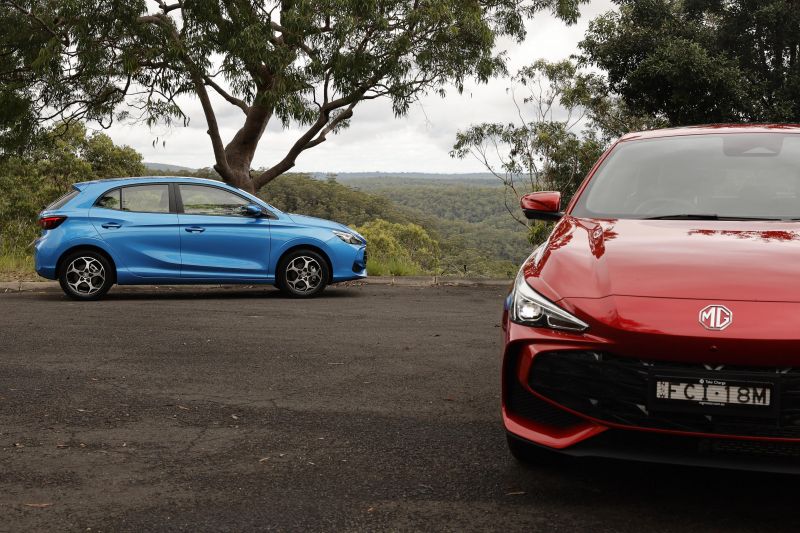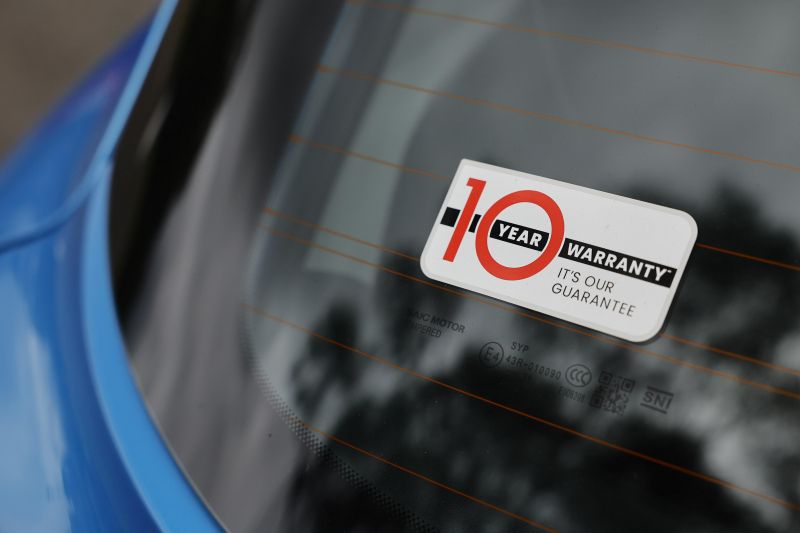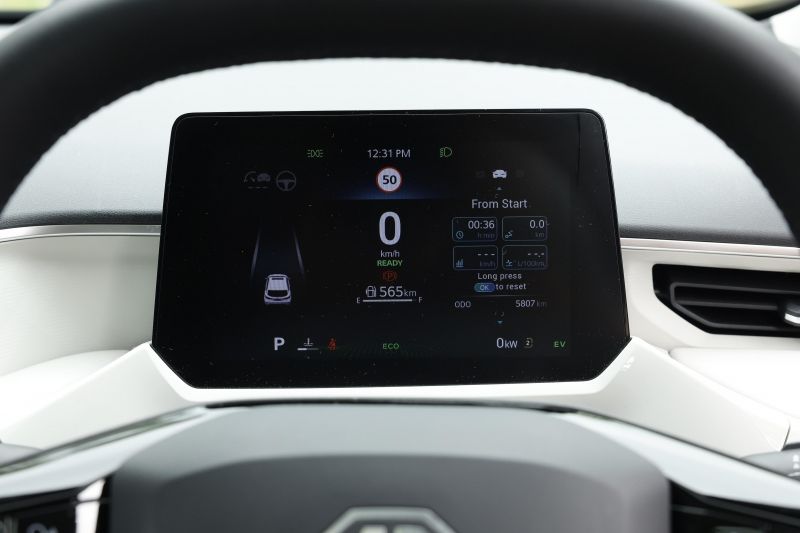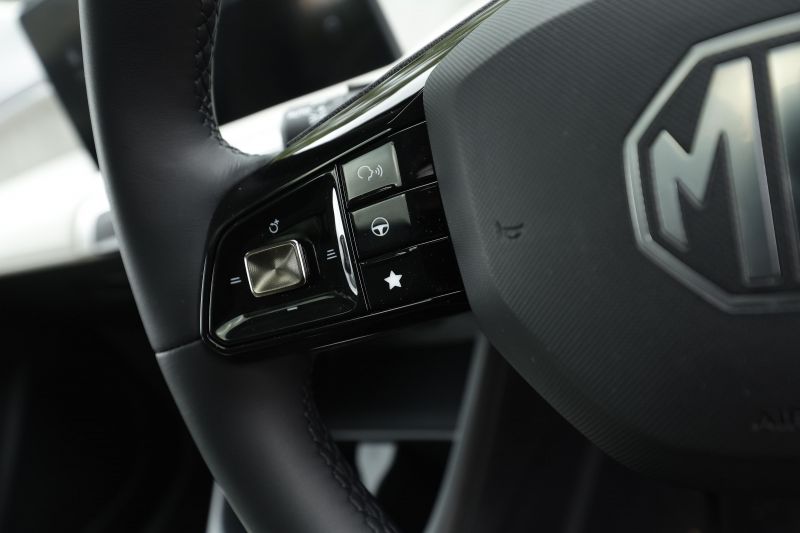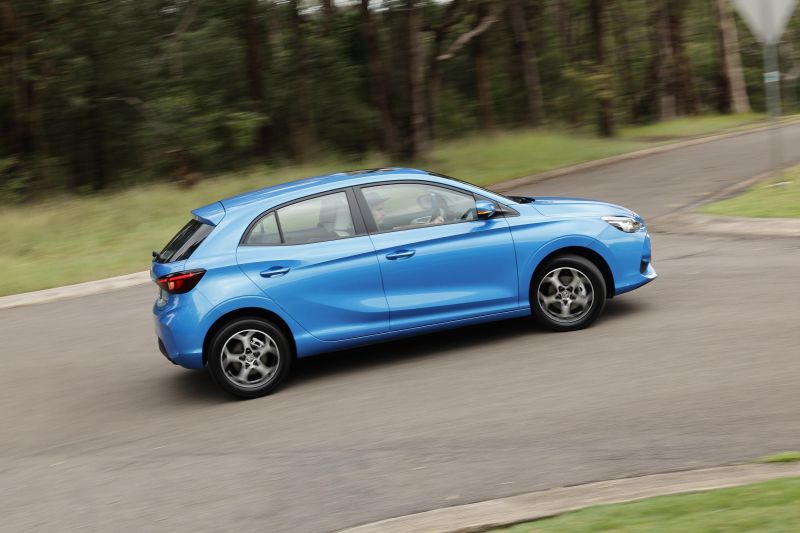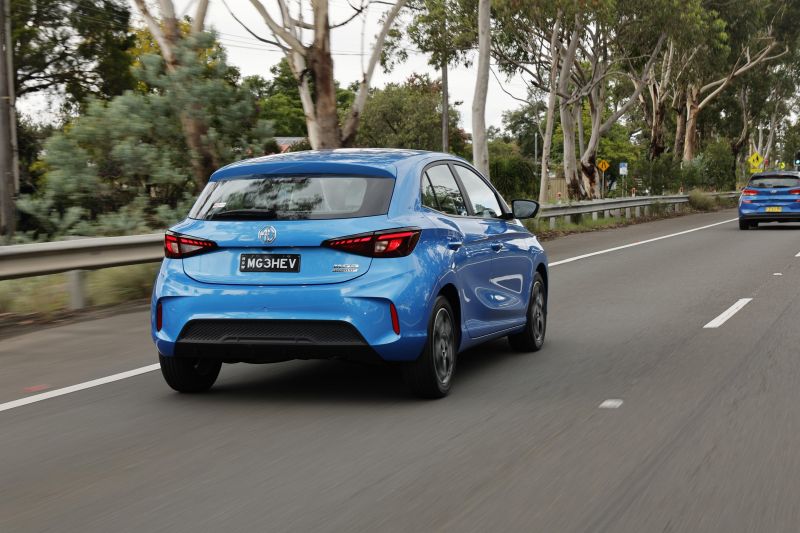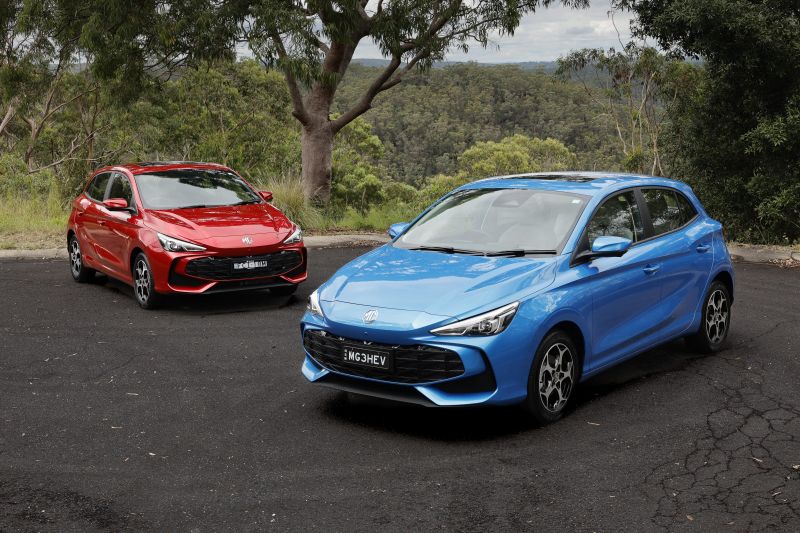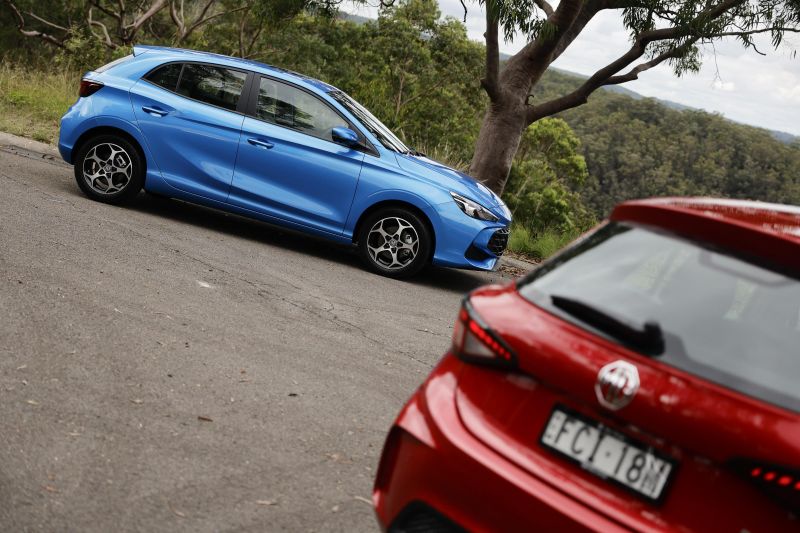The new-generation 2025 MG 3 hatchback range offers a number of choices for new-car buyers, but the decision whether to go for one of the more affordable petrol variants or spend extra and get a new Hybrid+ version is a question many of you will have pondered.
The MG 3 range is offered with two trim levels – the entry-level Excite and more richly-specified Essence – with petrol and hybrid versions of both available.
There is a big price premium for the petrol-electric variants, but the question of whether they justify that premium is one worth considering.
So for this comparison we put the high-spec Essence grades up against each other – petrol versus petrol-electric hybrid, or HEV.
What’s under the bonnet isn’t the only big difference between the these two vehicles – naturally, there are some considerations in terms of fuel use, ownership costs, standard inclusions and technology.
-
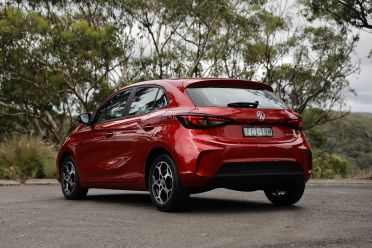
MG 3 Essence -
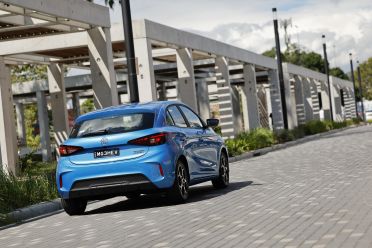
MG 3 Essence Hybrid+
So is it worth outlaying more of your hard-earned cash to choose the Hybrid+? And is it that much better to drive? Will it end up saving you money on petrol?
Let’s go through it…
How much?
There is a sizeable gap between the Essence grades of the 2025 MG 3.
| Model | Drive-away pricing |
|---|---|
| MG 3 Essence | $24,990 |
| MG 3 Essence Hybrid+ | $32,465 |
We’re talking about a 30 per cent jump in expenditure if you’re thinking about the hybrid instead of the petrol.
That could be the difference between your finance payments allowing you to grab a couple of takeaway coffees during the week, or indulge in the occasional Uber Eats, or not.
In both instances there are cheaper choices on offer. The MG 3 lineup has the more affordable Excite grades in both petrol (from $21,888 drive-away) and Hybrid+ (from $28,990 drive-away), so if you’re coin-conscious it might be worth considering the entry grade, which still come decently equipped for the money.
Drivetrains and Efficiency
This is where these two models separate themselves from one another.
-
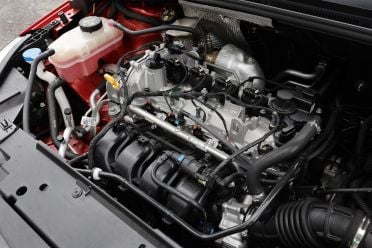
MG 3 Essence -
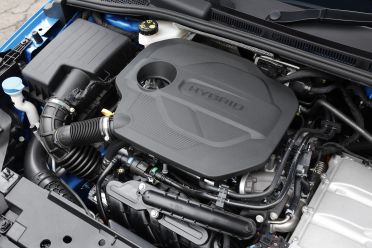
MG 3 Essence Hybrid+
| Specifications | MG 3 Essence | MG3 Essence Hybrid+ |
|---|---|---|
| Engine | 1.5L 4cyl petrol | 1.5L 4cyl petrol-electric |
| Power | 81kW | 75kW – engine only 155kW – system |
| Torque | 142Nm | 128Nm – engine only |
| Electric motor | – | 100kW |
| Battery | – | 1.83kWh |
| Transmission | CVT automatic | 3-speed hybrid transmission |
| Drive type | Front-wheel drive | Front-wheel drive |
| Weight | 1199kg | 1308kg |
| Fuel economy (claimed) | 6.0L/100km | 4.3L/100km |
| Fuel economy (as tested) | 7.1L/100km | 4.7L/100km |
| Fuel tank capacity | 45 litres | 36 litres |
| Fuel requirement | 91 octane regular unleaded | 95 octane premium unleaded |
| CO2 emissions | 139g/km | 100g/km |
| Braked tow capacity | 500kg | 500kg |
The maximum combined power output for the Hybrid+ is almost double that of the standard version, but it weighs less than 10 per cent more.
The outcome is significantly better performance in some situations, though MG still quotes a modest 0-100km/h time for the petrol-electric model of 8.0 seconds – low, considering it has more power on paper than a Volkswagen Polo GTI or Hyundai i20 N!
It’s worth pointing out the official combined cycle fuel consumption figure for the Hybrid+ is slightly more realistic than the petrol version’s. During our time with it, the hybrid was still over MG’s claim by 9.0 per cent, where the standard MG 3 petrol – across identical testing – was 18 per cent over.
Of course the hybrid was more frugal, to the tune of almost 2.5L/100km. But the reality is that trying to justify the extra $8000 upfront cost on the hybrid system based on fuel efficiency benefits alone would take a certain amount of squinting at a spreadsheet.
Realistically, it’ll take you a long time and lots of kilometres to recoup the cost. The resale benefit might be on your side, however. And we’ll get to the differences in the driving experience below.
Dimensions
There is no difference between these two vehicles when it comes to the exterior dimensions.
-
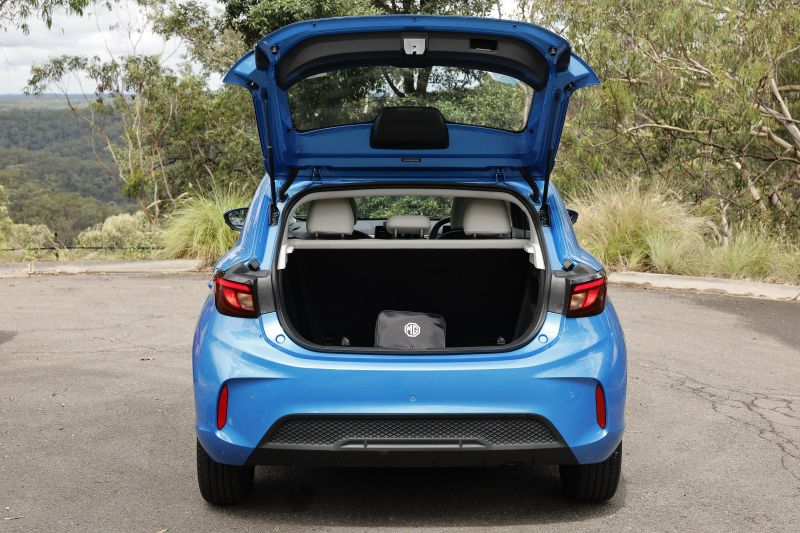
Hybrid+
| Dimensions | MG 3 Essence | MG 3 Essence Hybrid+ |
|---|---|---|
| Length | 4113mm | 4113mm |
| Width | 1797mm | 1797mm |
| Height | 1502mm | 1502mm |
| Wheelbase | 2570mm | 2570mm |
| Cargo capacity | 293L – rear seats up 983L – rear seats folded |
293L – rear seats up 983L – rear seats folded |
| Spare Wheel | Space saver | Tyre repair kit |
If you’re one of those people who insists on having a spare tyre, the hybrid will be ruled out. The reason it doesn’t have a spare is because of the layout of the powertrain – the hybrid battery is housed below the boot floor where the space-saver spare sits in the petrol version.
As for the interior design and differences? Both are strikingly similar, as you’d expect. More interior details can be found in the sections below.
Servicing and Warranty
As with all MG models, the MG 3 is covered by the Chinese brand’s new benchmark 10-year, 250,000km warranty (whichever occurs first).
| Servicing and Warranty | MG3 Essence | MG3 Essence Hybrid+ |
|---|---|---|
| Warranty | 10 years or 250,000km | 10 years or 250,000km |
| Roadside Assistance | 10 years, service activated | 10 years, service activated |
| Servicing Intervals | 12 months or 10,000km | 12 months or 10,000km |
| Capped-price service plan | 10 years or 100,000km | 10 years or 100,000km |
| Average service cost | $501 | $510 |
That level of cover is conditional on you being a private customer, but if you are a commercial/fleet buyer, you will still score a strong seven-year, 160,000km warranty plan.
There’s less than a quarter of a tank of fuel’s worth of difference in average servicing costs, and both MG 3s require maintenance annually or every 10,000km. So in terms of maintenance costs, it’s pretty close once again.
Safety
The new-generation MG 3 wears a three-star ANCAP safety rating against the strictest 2024 criteria.
-
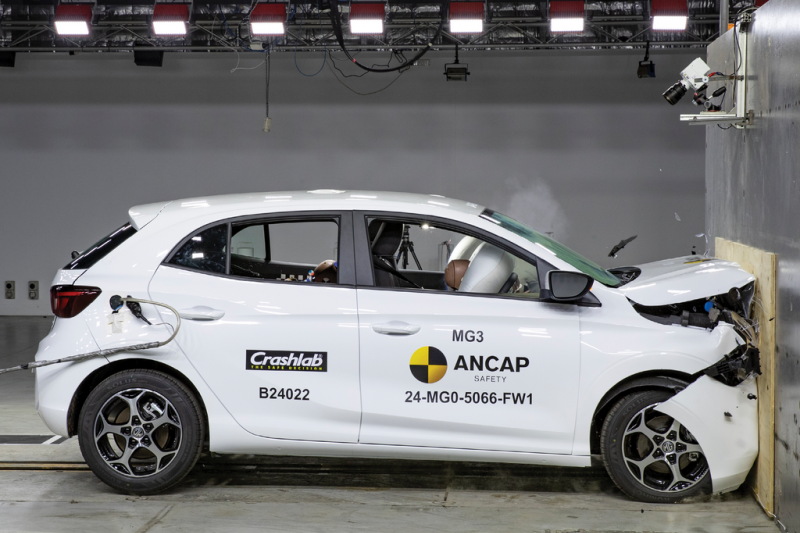
MG3 ANCAP crash test
| Category | MG 3 |
|---|---|
| Adult occupant protection | 72 per cent |
| Child occupant protection | 74 per cent |
| Vulnerable road user protection | 76 per cent |
| Safety assist | 58 per cent |
Standard safety equipment across the range includes:
- Autonomous emergency braking (AEB)
- Pedestrian
- Cyclist
- Junction
- Car
- Lane keeping assistance and lane departure warning
- Emergency lane keep assist
- Adaptive cruise control
- Intelligent cruise assistance (traffic jam assist with steering, acceleration and braking)
- Speed sign recognition
- Overspeed warning
- Blind-spot monitoring
- Rear cross-traffic alert
- Reversing camera
- Rear parking sensors
- Tyre pressure monitoring system
MG 3 Essence adds:
- Surround view camera system
MG 3 Hybrid+ adds:
- Pedestrian warning system outside the car
Technology
Any previous-generation MG 3 owners will likely be blown away by the tech on offer in this model, and it’s largely identical across both variants here – though there are some different submenus between Hybrid+ and petrol versions.
-
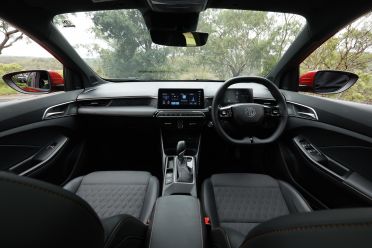
MG 3 Essence -
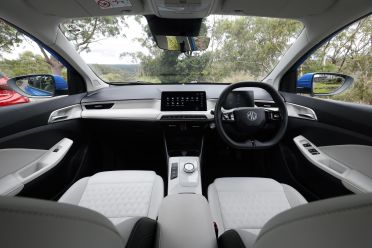
MG 3 Essence Hybrid+
For example, the Hybrid+ has drive modes, and they show up on the 7.0-inch driver info screen when you hit the button to adjust them (you can also set it up as a favourite using the left star button on the steering wheel).
The driver info screen is also where you will see an icon to tell you if you’re in HEV or EV modes, and there’s a small display with the regenerative braking system setting display – 1, 2 or 3, the latter being the most assertive.
You make those adjustments on the central 10.25-inch touchscreen, which is simple and complex in equal measure. However, the longer you spend in the car, the easier it becomes.
There’s also satellite navigation built in. You’ve got regular Bluetooth if you want to use that instead of wired smartphone mirroring, and there are also AM, FM and digital DAB+ radio tuners.
There’s a second home screen with more menus, including your 360-degree camera button as well as vehicle controls and USB video playback. Plus, the user manual for the car is on the screen, which is a nice touch and you can search what you need on there – it also means more space for snacks in the glovebox, too.
A set of knobs and dials for the climate control would be an improvement – because as it is, you must use the touchscreen to manage fan and temperature controls.
Below the screen there are toggles for volume, and a home button to get you back to the MG menu screen. Of course, there is Apple CarPlay and Android Auto, but you must use a USB cable to connect up. Frustratingly, there’s no wireless phone charger, either.
As with all new cars, it will take a little bit of learning to get your head around the menus on the display, but thankfully it has a simple interface that, once you’re accustomed to it, will become second nature.
For drivers who don’t like active safety technology getting in the way of their drive experience (ahem, I’m guilty as charged), there are adjustment menus on-screen for the MG Pilot advanced safety suite.
One plus is the drop-down menu to quickly disable the lane-keeping assistance, but it would be even better if the speed-sign recognition and warning systems had a shortcut there, too.
The minimalist buttons and toggles on the steering wheel are good once you’ve got the hang of them, but they are fingerprint magnets. The steering wheel icon is the cruise control button, with the toggle allowing you to increase speed and/or distance to the car ahead if you’re using adaptive cruise control.
And, the little ‘pages’ icon on the right side lets you dive into the driver info screen using the arrow trigger, otherwise you will be skipping songs or turning up/down the volume.
Comfort and Convenience
When it comes to comfort and convenience, the MG 3 Essence Hybrid+ differentiates itself from its petrol equivalent with a rotary dial gear selector, the addition of different drive modes, and classy climate control air-conditioning.
-
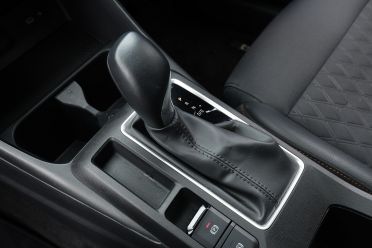
MG 3 Essence -
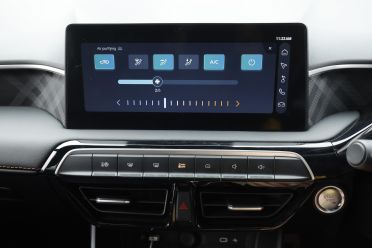
MG 3 Essence -
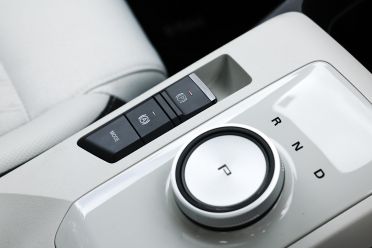
MG 3 Essence Hybrid+ -
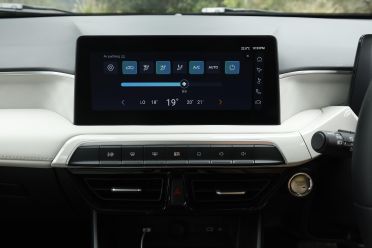
MG 3 Essence Hybrid+
While the hybrid we used for this comparison test had the impressive light interior trim, that has unfortunately been discontinued by MG Australia. That’s a shame, as it really acted as a discussion point among our testers.
The blacker finish with orange stitching that is now the sole option (as pictured in our petrol model) is still classy and high quality, with fake leather and cloth elements.
When it comes to the interior practicality, there is no splitting these two. Both have the same shortcomings – a lack of physical dials and some fiddly controls for the media screens, no reach adjustment for the steering wheel, and seats that feel a bit softly bolstered on the bases.
But moreover, both have plenty of excellent elements for a car of this size.
-
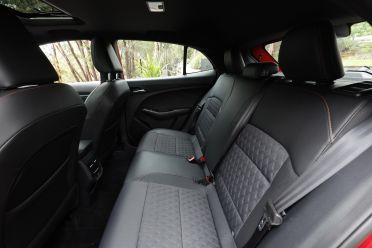
MG 3 Essence -
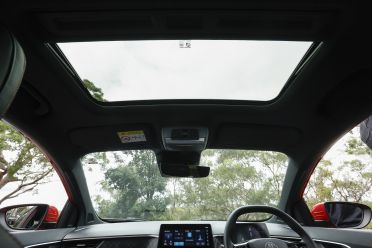
MG 3 Essence -
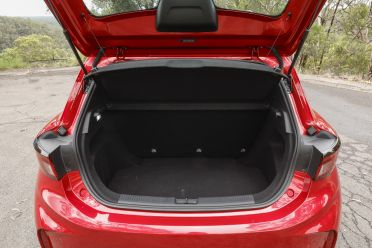
MG 3 Essence -
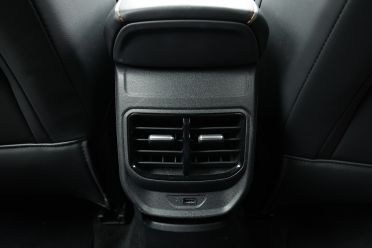
MG 3 Essence
For instance, if you get into one of the other light hatches in this class (Toyota Yaris, VW Polo, Hyundai i20) you won’t have nearly as much second-row space for adult occupants.
There is ample legroom and shoulder room for two grown-ups, and of course you get ISOFIX child seat anchors and three top-tethers as well.
The practicalities are covered, with directional air vents in the second-row (a rarity in little cars), plus multiple USB ports, decent door pockets and map sleeves, and plenty of loose item locations.
Boot space – 293 litres with the rear seats up – is another bonus. Just be aware that you have to fold the rear seatback down in a single piece if you want access to all 983L of cargo space – that means no IKEA trips with a child-seat-aged kiddo, unless you’re a Tetris master.
Driving
Rather unsurprisingly, these two vehicles are remarkably similar to drive in a number of ways.
-
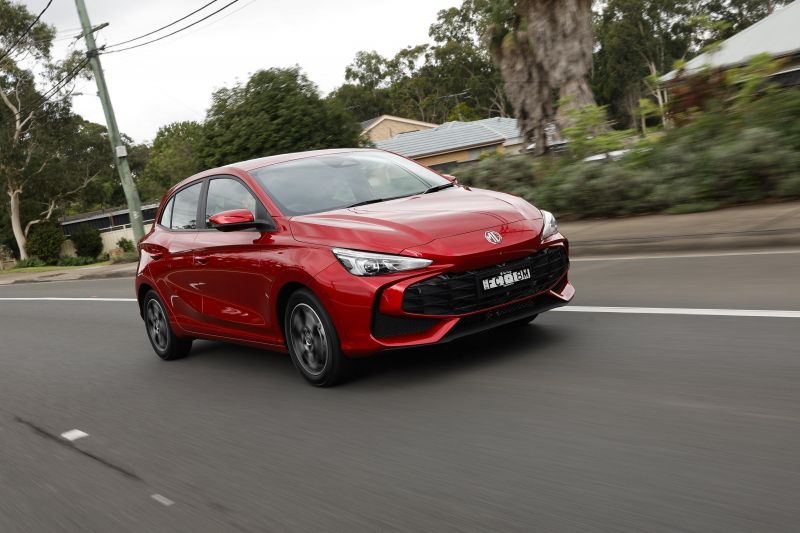
MG 3 Essence
Both offer a comfortable ride, with suspension that is well suited to dealing with city streets and highway roads alike. There’s a decent level of balance to the way each car handles corners, too.
I picked up on some subtle differences in terms of the suspension, though. The heavier hybrid has a touch more of a rigid feeling at the rear, which is hardly a dealbreaker.
Both are fitted with the same Kumho Solus 195/55/16 tyres, so there’s no perceptible difference in terms of grip in the twisty bits, and likewise the steering is a hair-splitting scenario as both react promisingly to inputs, and while it’s not hot-hatch like to drive, it’s enjoyable enough on a daily basis.
The biggest difference, clearly, is the powertrain.
-
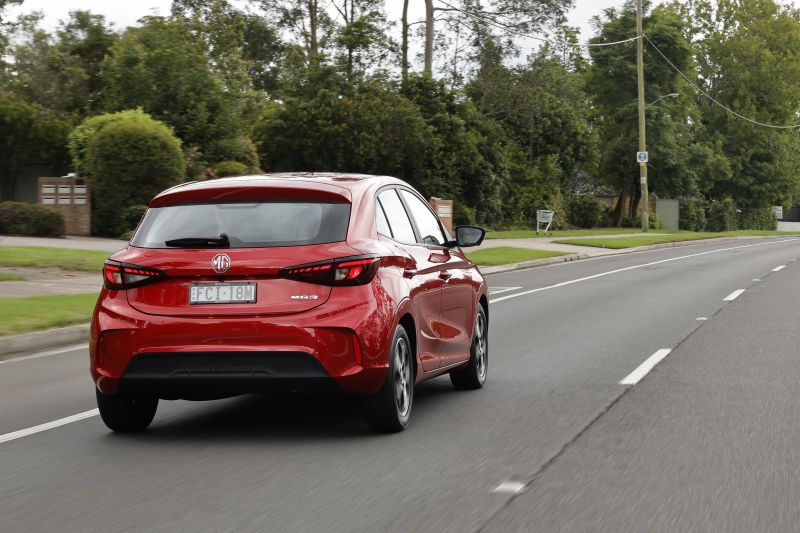
MG 3 Essence
The petrol engine is, well, dull compared to the Hybrid+. That’s mainly due to the CVT automatic, which is laggy and lurchy at times, especially in light-throttle situations.
However, when you are a bit heavier with your right foot, you will be rewarded with positive levels of response from the powertrain, although it also has quite a bit of an audible response as well.
I think for commuters who will spend most of their time cruising at highway pace, this would be a fantastic choice. I enjoyed each of my long-distance commutes, and didn’t find the powertrain to be a particular impediment to the drive experience until it got to dealing with intersections.
Meanwhile, the petrol-electric Hybrid+ makes for a liveable option in a lot of situations.
-
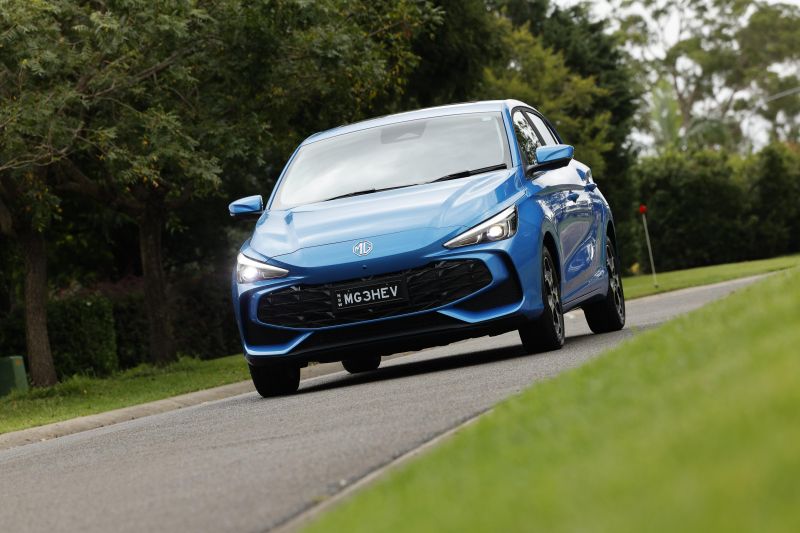
MG 3 Essence Hybrid+
The electric assistance from the motor and battery pack really does give you more perk, more pep, and more punch when you might need it – especially in urban driving situations where you can find yourself needing just a little squirt of power to do a quick manoeuvre – and in that instance this powertrain delivers.
The fact it doesn’t have the same sort of whiney nature that the non-hybrid does also means it’s generally a more refined experience, and it is mostly well considered in the way that the powertrain behaves.
However, I did have one issue. During my testing up steep hills, it would get to a point where the electric motor would stop assisting the powertrain, seemingly running out of e-juice, and apparently leaving the engine alone to do the work.
In that instance not all power is available, and it led to some moments where I was driving uphill with my foot flat to the floor but not going any faster – in fact, I was losing pace.
This has been reported in the past, and there was a rectification made to the larger ZS Hybrid+ in response to reports of this behaviour. To our knowledge, this hasn’t happened for the MG 3 Hybrid+, and it evidently should.
However, if you are the sort of person who is mainly just going to drive in suburbia all the time, it might not be that much of a concern. I would still expect that MG fixes it somehow, though.
One of the weird little quirks that you might need to pay attention to is the gear selector in the hybrid, which is a rotary shift-by-wire unit that can be a little slow to react and also a little finicky when you’re going from Drive to Reverse, or vice-versa.
Conversely, something the petrol MG 3 does more convincingly than the hybrid is braking.
Because it doesn’t have regenerative braking, it has a more honest response to the pedal, and it’s much easier to manipulate vehicle speed in lower and high-speed situations with more smoothness and regularity.
In the hybrid, there’s a touch more pedal travel, and of course you’ll likely have the regen braking doing some (if not most) of the work for you – so it mightn’t be a major concern for some buyers.
CarExpert’s Pick
Realistically, your budget will determine the best choice between these two.
If you can’t spend extra on the Hybrid+, you’re still getting a fine little petrol hatchback with the ICE version.
It’s not the most outstanding powertrain, but on balance it has decent driving dynamics, good interior space and useability, and plenty of useful inclusions.
You’ll be able to live happily with it, and while it isn’t quite as zesty or efficient as its petrol-electric sibling, it’s still a solid choice that will certainly suit budget-conscious commuters and country buyers alike.
If you think living life partly-electrified is worth spending the extra money for, then the Hybrid+ will tick the box for you. But it commands too high a price premium in this writer’s opinion, especially given some of the powertrain quirks we experienced – it’s a better car for city-dwellers, I reckon.
What do you think? Have your say in the comments section below!
Interested in buying an MG 3? Get in touch with one of CarExpert’s trusted dealers here
Click the images for the full gallery
MORE: Everything MG 3



